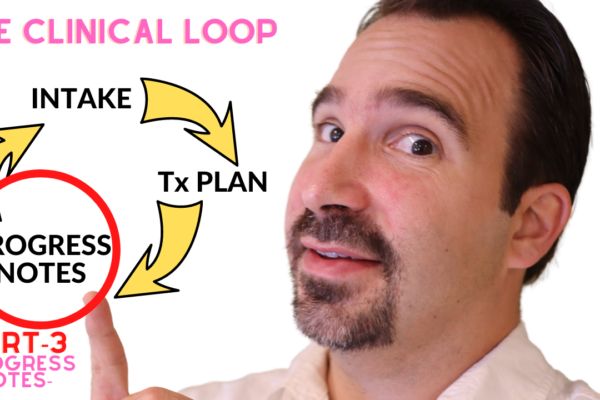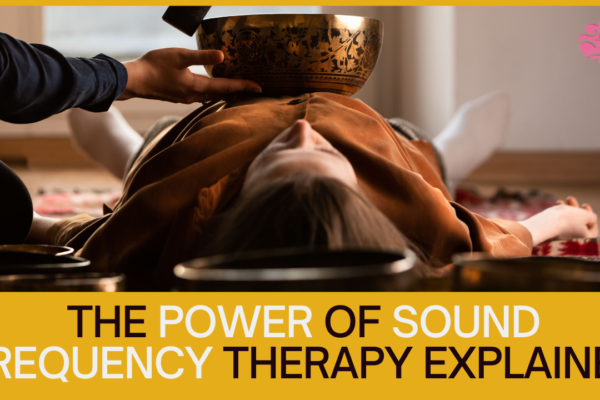Table of Contents
Understanding Derealization in Therapy: Key Insights for Mental Health Professionals
In this comprehensive video, therapist Patrick Martin breaks down the complex topic of derealization and its implications for therapy. Here are the main points covered:
1. Defining Derealization and Depersonalization
– Derealization: A persistent or recurrent feeling of detachment from one’s surroundings, as if the world is unreal, dreamlike, or distorted
– Depersonalization: A persistent or recurrent sense of detachment from one’s own mental processes or body, as if observing oneself from the outside
– Both are forms of dissociation often related to anxiety disorders, trauma, or stress
– These experiences can be distressing and interfere with daily functioning
2. Distinguishing from Psychosis
– Reality testing remains intact in derealization, unlike in psychotic disorders
– Clients with derealization maintain insight into their condition and recognize that their perceptions are altered
– Absence of hallucinations or delusions typically associated with psychosis
– Derealization is often accompanied by anxiety about the experience, whereas psychosis may not cause distress
3. Common Symptoms and Descriptions
– Feeling like the world is unreal, artificial, or dreamlike (e.g., “like being in a movie”)
– Visual distortions: objects may appear blurry, too bright, or oddly shaped
– Sensory changes: sounds may seem muffled or unusually loud
– Time distortions: time may seem to speed up, slow down, or feel discontinuous
– Emotional numbness or feeling disconnected from one’s emotions
– Experiencing the environment as flat, lifeless, or lacking depth
4. The Anxiety Cycle and Derealization
– Awareness of derealization symptoms can trigger anxiety and panic
– Anxiety about the experience can intensify derealization symptoms
– This creates a self-perpetuating cycle that can be difficult to break
– Understanding this cycle is crucial for both therapists and clients
– Breaking the cycle often involves addressing underlying anxiety and reducing fear of the derealization experience itself
5. Triggers and Contributing Factors
– Trauma triggers: reminders of past traumatic events can induce derealization
– Physical stressors: sleep deprivation, poor diet, substance use, or illness
– Psychological stressors: work pressure, relationship conflicts, or major life changes
– Anxiety and panic disorders can precipitate or exacerbate derealization
– Identifying specific triggers is essential for treatment planning and management
6. Coping Strategies and Treatment Approaches
– Psychoeducation: helping clients understand the nature of derealization and its relationship to anxiety
– Normalization: reassuring clients that derealization is a common experience and not a sign of “going crazy”
– Grounding exercises: using sensory input to reconnect with the present moment (e.g., holding ice, focusing on textures)
– Mindfulness techniques: practicing non-judgmental awareness of experiences
– Exposure therapy: gradually facing feared situations or sensations associated with derealization
– Cognitive-Behavioral Therapy (CBT): challenging and reframing unhelpful thoughts about derealization
– Addressing underlying anxiety or trauma through appropriate therapeutic interventions
7. DSM-5 Criteria and Differential Diagnosis
– Key diagnostic criteria for Depersonalization/Derealization Disorder in DSM-5
– Persistent or recurrent experiences of derealization, depersonalization, or both
– Symptoms cause significant distress or impairment in functioning
– Experiences are not better explained by another mental disorder or substance use
– Conditions to consider in differential diagnosis:
– Panic Disorder: derealization may occur during panic attacks
– Post-Traumatic Stress Disorder (PTSD): dissociative symptoms including derealization
– Major Depressive Disorder: can include feelings of unreality or detachment
– Schizophrenia Spectrum Disorders: distinguishing reality distortions from psychotic symptoms
8. Key Takeaways for Therapists
– Importance of validation and understanding: acknowledging the distressing nature of derealization
– Tailoring treatment to individual experiences: recognizing that derealization manifests differently for each client
– Staying updated on research and best practices in treating dissociative symptoms
– Collaborating with clients to develop personalized coping strategies
– Addressing underlying anxiety, trauma, or other contributing factors
– Monitoring for comorbid conditions and adjusting treatment plans accordingly
– Emphasizing a non-judgmental, supportive therapeutic relationship to facilitate healing
This video provides valuable insights for mental health professionals looking to enhance their understanding and treatment of derealization in therapy settings. By comprehensively addressing the various aspects of derealization, therapists can better support clients experiencing this challenging condition.
*Some of the links found here are affiliate links: As an Associate I earn from qualifying purchases by way of commission at no additional cost to you. See full disclaimer here:
This Episode Is Brought To You By:

Stream live to YouTube and all of your socials at once; Record your videos and podcasts; edit and post shorts and clips.
This tool is a Game-Changer for any content creator 🙌

TherapyNotes® is a complete practice management system with everything you need to manage patient records, schedule appointments, meet with patients remotely, create rich documentation, and bill insurance, right at your fingertips. Our streamlined software is accessible wherever and whenever you need it.
This tool is a MUST for any practice owner!
Watch The Interview
If you liked this episode, be sure to check out my full playlist of interviews here: https://youtube.com/playlist?list=PLnPL9gahfhWatKmy2YSyU0jt20h_jrj3H
Listen To The Interview
*Some of the links are affiliate links: As an Associate I earn from qualifying purchases by way of commission at no additional cost to you.
Want to learn more? Check out my top picks for books on self-improvement and recovery HERE!
The Mental Health Toolbox: Resources and Support for Therapists Seeking Growth & Impact.
Mission Statement: To equip therapists with the tools, knowledge, and strategies they need to enhance their practice, boost their income, and ultimately, improve the lives of their clients. We achieve this through accessible, high-quality content, practical resources, and a supportive community.
NEED CRISIS HELP? If you need immediate crisis help with your depression, you can call the National Suicide Prevention Lifeline at 1-800-273-8255 or text “START” to 741-741
OUTSIDE THE UNITED STATES: See International Suicide Hotlines
WHERE TO FIND MENTAL HEALTH HELP:
-NAMI Referral Helpline: 1-800-950-6264
-California’s Statewide Mental Health Helpline: 1-855-845-7415
ASK: If you have a question you’d like me to answer here on the blog (even if you think it’s a silly one!), please use the form on the CONTACT ME page, or the comment section below. I would be happy to take a poke at it and provide a long form answer when appropriate.
SHARE: Also, be sure to share it with a friend, as there is still a lot of work to be done in raising mental health awareness.
SUBSCRIBE to get your FREE MOOD TRACKING TOOL and quick Mental Health Hacks in addition to this newsletter. Sign-up with the form below.
[mc4wp_form id=”142″]
admin
Latest posts by admin (see all)
- How to Build a Referral Engine Without the “Hustle”: - January 12, 2026
- ADHD Tips for Therapists | with Dr. Jennifer Dall - May 28, 2025
- Why Therapy Fails Men (And How to Fix It) – Insights with Marc Azoulay - May 11, 2025













